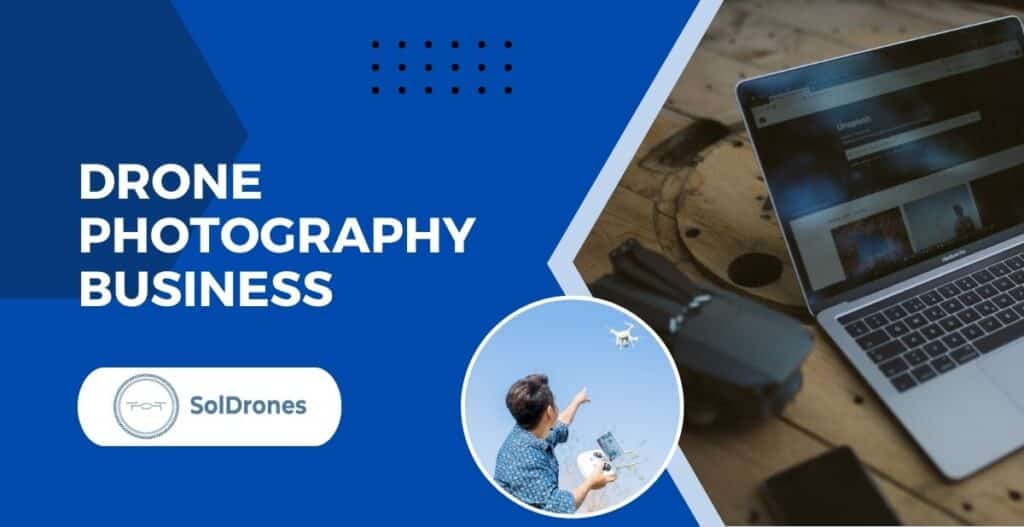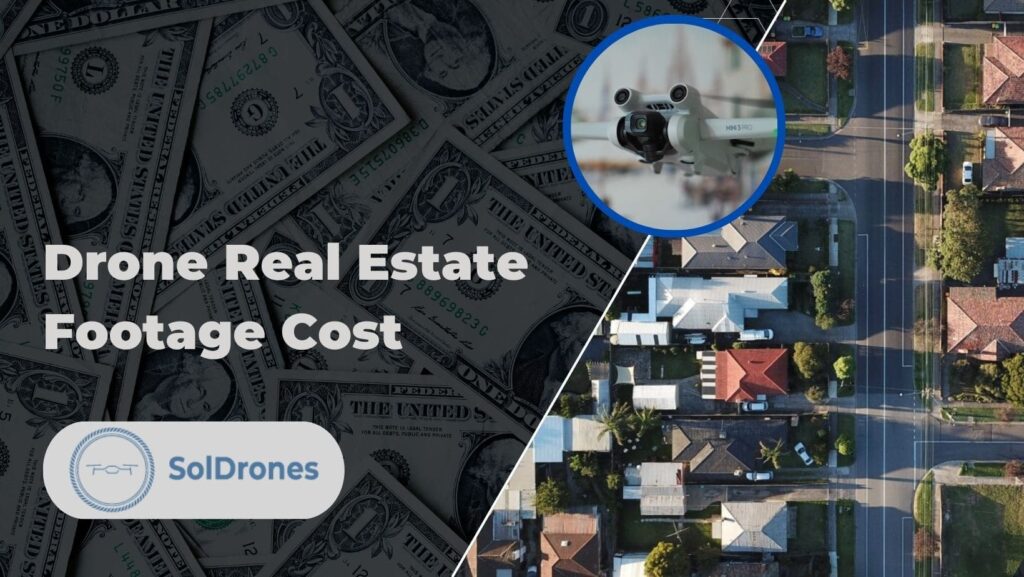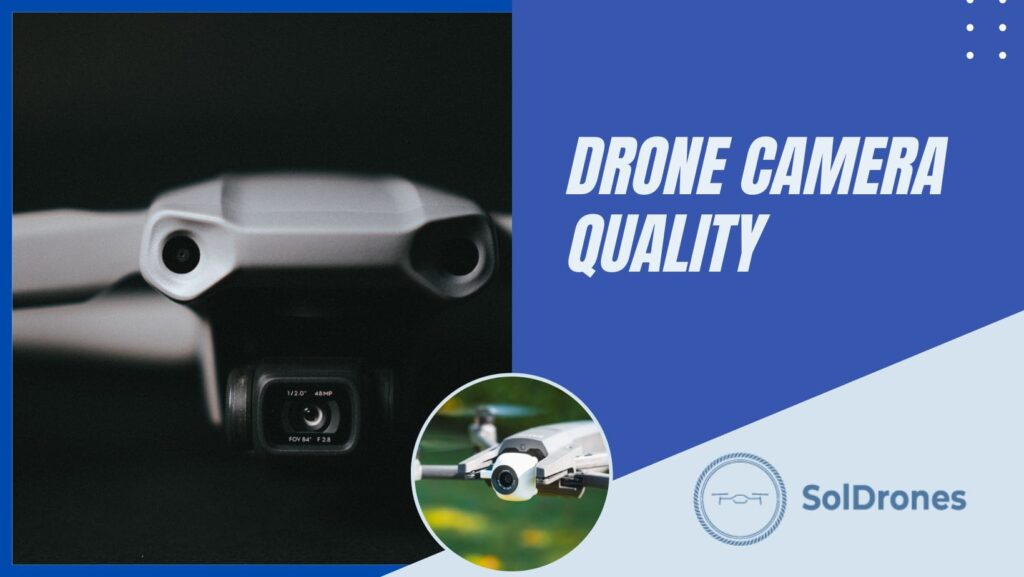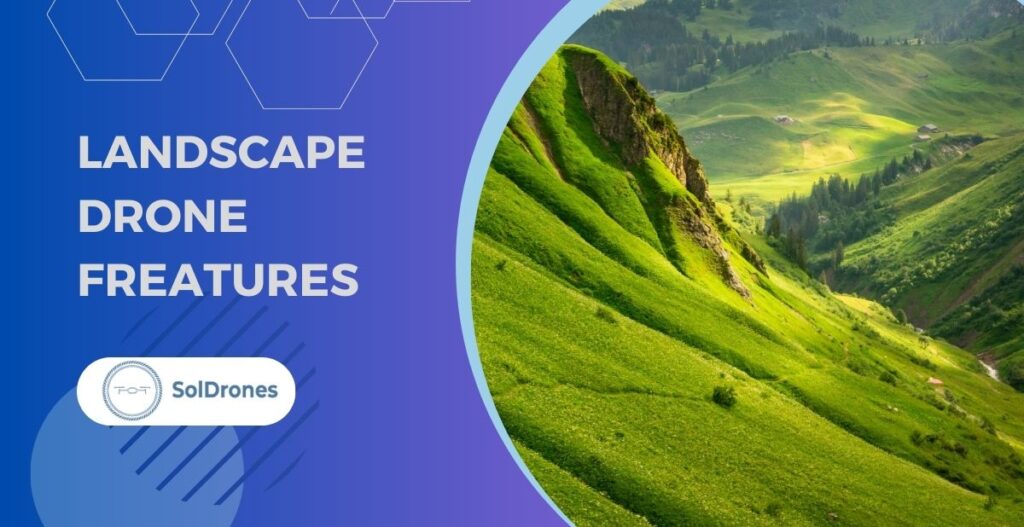Drones are everywhere these days and as a photographer if you have yet to become a commercial drone pilot, you’re missing the boat.
And, you’re missing a boatload of income opportunities.
The commercial drone industry is absolutely taking off and the drone industry as a whole holds a very optimistic outlook. But what does that mean for traditional photographers?
At SolDrones, we assist digital creators in expanding their businesses and increasing their earning opportunities by providing resources that enhance their skills and optimize their business operations.
If you’re just starting off as a drone photographer or are looking to scale your drone business and start earning more, we’ve created the perfect guide just for you.
Highlights:
- Now is the best time to start a drone photography business
- 6 key steps to starting your drone business (hint: market niche selection)
- Getting starting is much simpler than most photographers are aware of
Why Start a Drone Photography Business?
Drones have changed the way we see the world. Not too long ago, aerial photography and videography was only available through helicopters which can cost hundreds – if not thousands of dollars per hour.
Nowadays, just about anyone can buy a drone, get it registered, and become a certified pilot by passing the Part 107 exam. Within a matter of weeks, drone photographers can start finding customers, some of which are willing to pay $500+ per hour!
But, like most businesses throughout industries, not everyone is an overnight success. In fact, the vast majority of startup businesses fail. To avoid the failed drone photography business startup trap, it’s critical to have a comprehensive plan that allows you to find clients and scale your income streams.
The great news is, as much as you want to become a drone photographer, other businesses need your drone photography services. Weddings, sports events, and movie production agencies are willing to pay a premium for the right drone photographer.
Simply put, while there are more and more commercial drone photographers entering the industry, the demand is also surging.
So, will you be one of the top pilots that leads the industries and scales your drone photography income? As with most businesses, it starts with having a plan and creating the right processes and systems built to scale.
Commercial Drone Business Plan
Once you’ve committed to starting your drone photography business, you’ll want to develop a sound business plan. To help guide you along your way, we’ve outlined 6 key steps that will help you hit the ground running.
- Research
- Legal Requirements
- Niche
- Business Setup
- Marketing
- Scaling Your Commercial Drone Business
The sections below explain each step in detail.
Commercial Drone Industry Research
When you’re just starting off as a drone photographer, you’ll want to conduct ample research so you know exactly what you’re getting yourself into. As the old saying goes: measure twice, cut once.
Here are a few key tenets to keep in mind to guide your research:
- Legalities & FAA Regulations: Familiarize yourself with the Federal Aviation Administration (FAA) guidelines and regulations for commercial drone operation. For example, to earn an income as a drone photographer, you must obtain a Remote Pilot Certificate by passing the Part 107 exam, as well as register your drone with the FAA.
- Market and Competition: Analyze the current landscape of drone service providers and identify potential areas for growth and differentiation. By developing a better understanding of your potential customers and the market competition, you’ll be able to properly set up your business for success with marketing and sales.
- Technology and Equipment: Research the technology and equipment that’s best for the type of business you wish to operate. Look into drone cameras, sensors, and video editing software. Determine which of these will best suit your business needs and budget.
- Financing: Research the different financing options available to you, such as bank loans, crowdfunding, and venture capital, or bootstrapping your business with your own funds.
Legal Requirements
The FAA has regulations for all commercial pilots seeking to fly drones in the United States. If you’re abroad, there are other country-specific regulations you need to also be aware of. It’s in your best interest to work with the FAA’s guidelines, rather than against them. Failure to comply can result in hefty fines and restrictions.
A few legal requirements to keep in mind include:
- Certifications: Make sure you’ve passed the Part 107 exam and are certified as a remote pilot.
- Registering Your Drone: Register your drone with the FAA.
- Flying in Legal Airspace: Only fly in legal airspace. The best resource in the U.S. to determine authorized airspace is the B4UFLY app, which is an FAA-partnered app that allows drone pilots to access an interactive map that identifies airspace classes.
Niche Selection
Do you want to be a drone pilot that photographs real estate photography, weddings, or marketing content? When it comes to selecting a commercial drone business niche, it’s critical to consider how you’re going to stand out from the competition while maintaining a steady customer flow.
Some factors to consider when selecting your drone business niche include:
- Equipment Required: Will your niche require a heavy-duty drone like the DJI Phantom 4 Pro, or something more simple, like a DJI Mini 3 Pro? Typically, the more sophisticated the drone, the higher earning potential for your business.
- Environment: Do you want to be spending time in nature flying a drone through farmlands or national parks, or do you prefer inspecting buildings? Or, in the case of real estate drone photography, taking photos and videos in and around houses and properties.
- Content Production: Drone footage and images can require editing and post-production that can often deter pilots and photographers. It’s important to understand your willingness to edit and the content you capture through video editing software before making an extensive commitment to your niche.
- Services: As a drone photographer, it’s very likely that you’ll need to provide editing services to your clients. In many cases, you’ll need to edit videos and raw images to fit your client’s needs. It’s worth considering if you’ll want to offer different photo and video editing packages along with your services.
Business Setup
Determine what business setup and structure most benefits your entrepreneurial goals. Your drone business can operate as a sole proprietorship, partnership, limited liability company (LLC), C corporation, or S corporation.
Freelance drone pilots often fly under a sole proprietorship or LLC structure. Sometimes it makes sense to set up your drone business as a partnership, C corporation, S corporation, or other types of corporation. Each structure has its own advantages and disadvantages, so be sure to choose one that aligns with your goals and potential liabilities.
It’s also necessary to obtain insurance coverage to protect your business and assets. In fact, the FAA requires drone operators to have liability insurance.
Finally, it’s always recommended to have a record-keeping system. This will help you manage your finances and ensure you are compliant with tax laws.
Marketing
One of the most difficult aspects of all businesses is finding new customers. Ultimately, finding new customers is the only way you’re going to generate income and improve your profit margins. In some cases, you may be able to rely on relationships you’ve established throughout the years to generate new customers. But more often than not, you will need to deploy marketing and sales tactics that generate brand awareness and new leads.
Some of our top suggestions for marketing your drone business include:
- Digital Properties: Create a website for your business, along with social media pages on Facebook, Instagram, and LinkedIn.
- Networking: Attend industry events and meetups that attract your ideal buyer personas.
- Portfolio: Create a portfolio to showcase your work. In many cases, you can use an Instagram channel as a digital portfolio.
- Partnerships: Form partnerships with associates throughout the industry and exchange value with each other.
- Sales Outreach: Research companies that could utilize your drone services and reach out via email and phone, offering your services with unique value propositions.
Photography Drone Selection
Selecting a drone as a drone photographer can be daunting. There are hundreds of drones to choose from which could cost you a few hundred to thousands of dollars.
To help you with your selection, we’ve identified some of the top criteria:
- Sensors: The last thing any drone pilot wants to do is crash their drone into a tree or building. Sensors help with obstacle avoidance and guiding the drone safely through various terrains.
- Stability: Gimbals stabilize the camera, keeping it level and allowing for smooth footage. Small motors and sensors adjust the camera’s position to compensate for the drone’s movement.
- Battery Life: Some drones can only fly for less than 20 minutes while others can last up to an hour. You’ll want to consider the required distances and flight durations for drone photography projects before making a purchase.
- Camera Quality: Purchasing a drone with at least 12-megapixel photos and a 4K camera is recommended if you’re going to be offering professional drone photography services. In general, the more you pay for your drone, the better quality the camera.
- Additionally Features: Obstacle avoidance, GPS, and return ot home are some of the key features that can making flying and capturing photos and videos easier.
Recommended Photography Drones for Beginners
If you’re just getting started as a commercial drone photographer, you’ll want to select a drone that matches the type of work you’ll be doing, along with your pilot skillset. There’s a bit of a learning curve when it comes to flying drones, so brace yourself to spend some hours learning how to fly.
We recommend the following drones for beginner drone photographers:
- DJI Mini 3 Pro: the DJI Mini 3 Pro is very affordable, weighs less than 0.55 lbs., and shoots 4K video at 30 FPS. The battery lasts around 32 minutes and the drone comes with several user-friendly intelligent flight modes such as Mapping & 3D Modeling, Digital Zoom, Hyperlapse, MasterShots, and FocusTrack.
- Skydio 2+: the Skydio 2+ is a great drone that also has a 4K camera at 60 FPS and is very affordable. The battery life is 27 minutes and can fly up to about 36mph/58kph. Some key features include autonomous subject tracking, collision detection, ease os use, and automatic video recording.
- Ryze Tello: the Ryze Tello is very affordable, has a 5MP camera, is small and lightweight, and has responsive controls. This is a great starter drone that’s a great pick especially if you’re on a budget for your first drone.
Scaling Your Commercial Drone Business
Mastering the fundamentals of being a commercial drone entrepreneur will take time, but in the long run, is totally worth it. Once your business is up and running, you’ll want to double down and scale so you can watch your profits grow. Building a business that is highly discoverable for your ideal buyer personas and brings them value is the key to success. Leverage your network, marketing, and skills to get in front of the right customers and you’ll be destined for success.
We wish you the absolute best in your commercial drone business ventures and happy flying!







